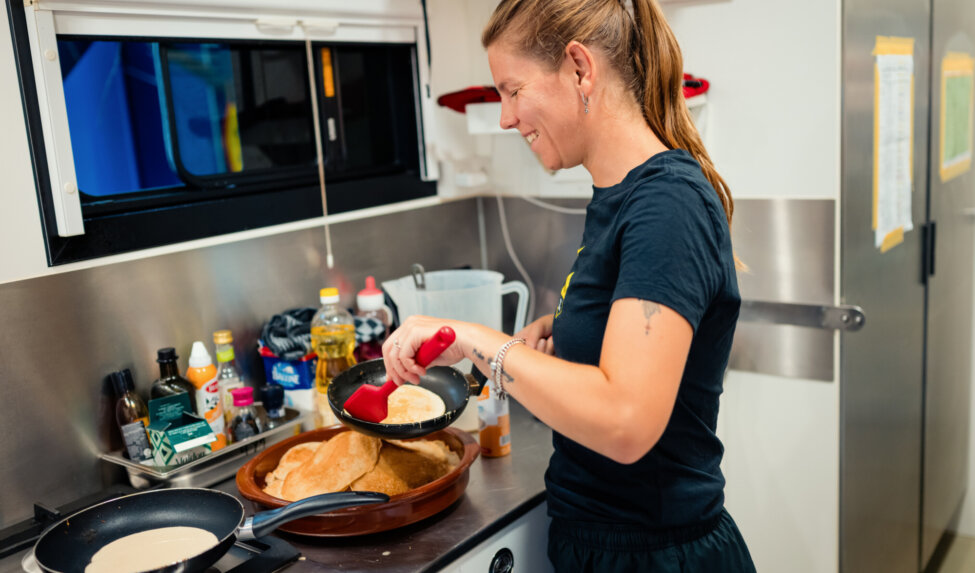Should I periodise weight loss throughout the year as a cyclist?
As a cyclist you can integrate weight loss periods into your annual training plan, aligning with training phases and your competition schedule to ensure you maintain performance while achieving your weight loss goals.
Why should I periodize my weight loss periods?
Carefully planning weight loss periods throughout the year is crucial for cyclists to optimise performance and maintain overall health. Cycling performance is affected by carbohydrate intake and energy availability. Therefore, abrupt or prolonged calorie deficits can reduce power output, endurance, and increase injury risk. By timing weight loss phases with training cycles (e.g. the general preparation phase, specific preparation phase, competition phase and transition phase/rest days), cyclists can manage calorie intake and training intensity strategically to preserve muscle mass, aid training adaptations, and prevent overtraining.
How do I get my weight loss periodisation throughout the year on point?
Familiarise yourself with the various phases of your annual training plan. Consider its distinct training goals and intensity levels when you’re planning weight loss periods:
- General preparation phase: During this phase, cyclists emphasise aerobic training and strength development. Given the substantial energy expenditure in this phase, it provides an ideal opportunity to gradually work towards improving body composition goals, such as weight loss, leading up to the competition phase.
- Specific preparation phase: This phase is dedicated to improving anaerobic capacity, power, and speed. It's crucial for athletes to achieve their final body composition goals during this period, prior to entering the competition phase. It's important to note that overly restricting energy or carbohydrate intake can negatively impact performance and compromise immune function. Therefore, athletes should avoid attempting rapid or significant weight loss regimes immediately before or during the competition phase.
- Competition phase: This phase includes the tapering period and culminates in peak performance. This phase is not appropriate for weight loss. However, take into account that during this phase, energy intake may not immediately match reduced energy expenditure due to competition demands. Therefore, it's advisable to track your food intake during these days to manage total energy intake and maintain an optimal peak body composition.
- Transition phase/rest days: This phase focuses on physical recovery, allowing the body to adapt to previous training phases while preventing overreaching symptoms. Minor shifts in body weight and body fat percentage may occur during this phase as part of the recovery process. However, athletes should aim to maintain a relatively stable weight and strive for energy balance during this period.
Are you in a weight loss appropriate phase? Use the FoodCoach app for step-by-step guidance and select your weekly weight loss target. Receive adjusted daily energy needs and find small changes in all your meals to reach your weight loss target. Kick of your journey with the 12-week Smart Weight Loss Plan in the FoodCoach app!

Definitions
- Overtraining: A condition characterized by excessive exercise volume, intensity, or frequency without adequate recovery, leading to persistent fatigue, decreased performance, and increased risk of injury or illness.
- Aerobic training: Physical exercise that uses oxygen to generate energy over an extended period, improving cardiovascular fitness and endurance.
- Body composition: Refers to the proportion of fat, muscle, bone, and other tissues that make up a person's body weight.
- Anaerobic capacity: Refers to the maximal ability of the body to produce energy through anaerobic metabolism, typically during high-intensity, short-duration activities.
- Tapering period: Refers to a gradual reduction in training volume and intensity leading up to a competition or event, aimed at optimising performance by allowing the body to recover and adapt to previous training while maintaining fitness.
- Peak performance: Refers to the state where a cyclist achieves their highest level of physical and mental capability, demonstrating optimal fitness, power output, endurance, and efficiency during races or key events.





